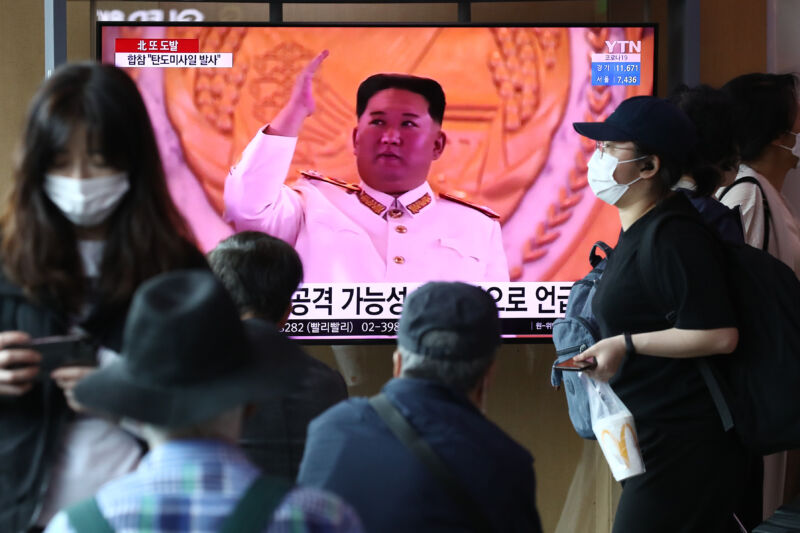
North Korea instituted a nationwide lockdown Thursday after reporting an omicron coronavirus variant outbreak in its capital, Pyongyang. The report marks the first time during the pandemic that the secretive, authoritarian country has acknowledged coronavirus cases within its borders, though outside experts have doubted the country’s previous claims of zero infections.
Acknowledging omicron cases in Pyongyang raises questions over whether the admission is a sign of deteriorating public health conditions and/or a signal that the country is willing to accept pandemic aid, including vaccines.
So far, North Korea’s government has rejected offers of COVID-19 vaccine supplies from the United Nation’s global vaccination effort, COVAX, and China’s domestically produced vaccines. North Korea is one of the few countries that has not run a public vaccination effort, and its 26 million people are believed to be largely unvaccinated.
The lack of widespread immune protection from vaccination or prior infection, combined with an ongoing food crisis and an overall weak health care system, makes an outbreak of the ultra-transmissible omicron variant particularly worrying. The effects of a mushrooming outbreak could not only be devastating for North Korea’s people, but some experts have worried that it could also become a breeding ground for new, more dangerous variants.
For now, details are scant on the current outbreak. North Korea state media reported that unidentified people showing signs of fever were tested on Sunday, and results indicated they were infected with the BA.2 omicron subvariant. The report did not say how many people had tested positive but declared a “most serious national emergency,” according to The Washington Post.
The state media showed images of leader Kim Jong Un wearing a mask, along with other masked officials, according to the Associated Press. Kim ordered “all the cities and counties to thoroughly lock themselves down” to prevent spreading omicron. Factory and farm workers were told to work in isolation, according to The New York Times.
Kim reportedly advised North Koreans to remain vigilant and united as a nation to fight the spread of disease. “An enemy worse than the malicious virus is unscientific fear and a lack of faith and will,” he said.
But, the country’s situation is generating fear among experts on the outside, particularly because if omicron runs rampant in North Korea, it could give rise to new variants there. Kee Park, a global health expert at Harvard Medical School who has worked on health care projects in North Korea, expressed concern to The Washington Post, calling on the international community to come to North Korea’s aid. “It is in everyone’s interest to help North Korea in responding to the breach. No one wants another variant.”
https://arstechnica.com/?p=1854072

